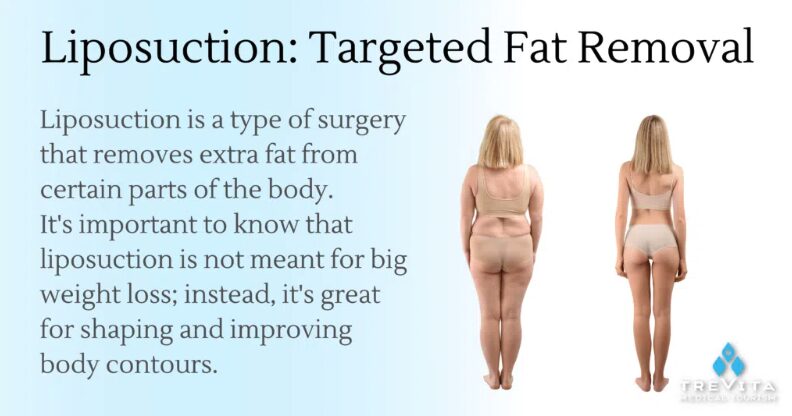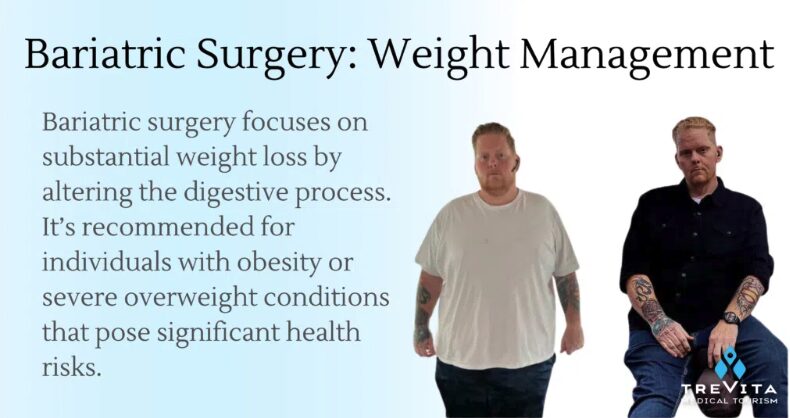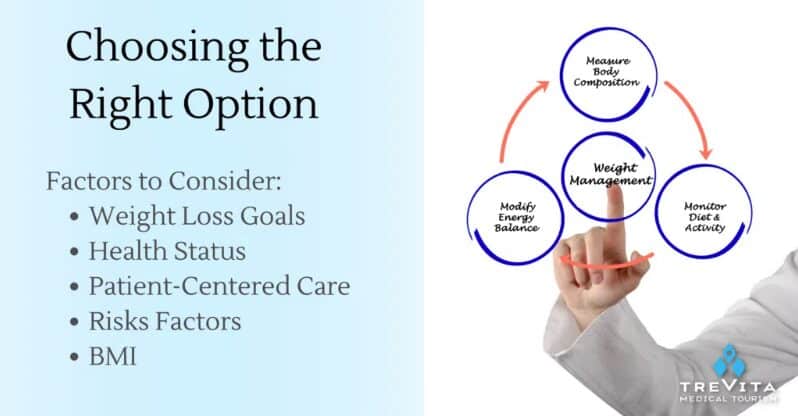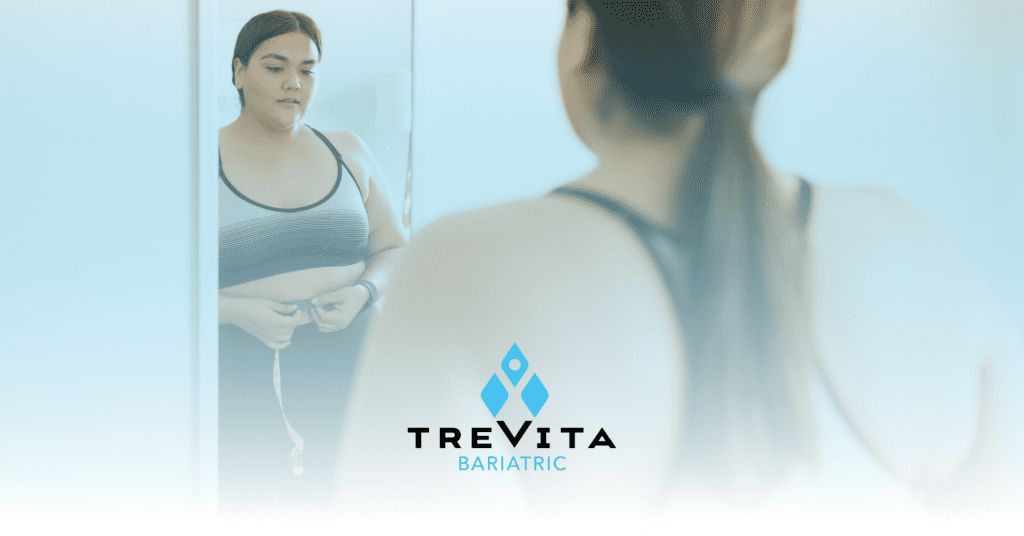Learn about the key differences between liposuction (cosmetic surgery) and bariatric surgery (surgical weight loss procedure) for weight management. Discover the benefits, risks, and factors to consider when choosing the right procedure for your health goals.
Liposuction vs. Bariatric Surgery: A Comprehensive Comparison
In the world of weight loss procedures, there are two main choices: liposuction and bariatric surgery. Although they both aim to help people get healthier, they work in very different ways. Knowing the differences between liposuction and bariatric surgery is important for making smart decisions about weight loss journeys.
Liposuction: Targeted Fat Removal
Liposuction is a type of surgery that removes extra fat from certain parts of the body, like the stomach, legs, hips, buttocks, arms, and neck.
It’s important to know that liposuction is not meant for big weight loss; instead, it’s great for shaping and improving body contours.

How Liposuction Works
During a liposuction procedure, the surgeon creates tiny cuts in the area being treated and puts in a thin tube called a cannula. This tube helps break up and remove fat cells, shaping the body as desired. Liposuction is typically done with either local or general anesthesia, depending on how much is being done.
Benefits of Liposuction
- Localized Fat Reduction: Liposuction effectively targets stubborn fat pockets that may not respond to diet and exercise.
- Improved Body Contours: Patients can achieve a more sculpted and toned appearance in treated areas.
- Minimal Recovery Time: Compared to bariatric surgery, liposuction typically involves a shorter recovery period.
Considerations and Limitations
- Not a Weight Loss Solution: Liposuction is not suitable for individuals seeking significant weight reduction, as it primarily addresses localized fat.
- Possible Risks: Like any surgical procedure, liposuction carries risks such as infection, bleeding, and contour irregularities.
- Maintenance Required: To maintain results, patients must adopt a healthy lifestyle with proper diet and exercise.
- Candidates need to be within a certain BMI range which varies by OR and Surgeon. Procedures may not be offered for BMI’s over the 28 to 35 range.
Bariatric Surgery: Comprehensive Weight Management
In contrast to liposuction, bariatric surgery focuses on substantial weight loss by altering the digestive process. This type of surgical weight loss procedure is recommended for individuals with obesity or severe overweight conditions that pose significant health risks.

Types of Bariatric Surgery
- Gastric Bypass: Involves creating a small stomach pouch and rerouting the digestive tract to limit food intake and nutrient absorption.
- Sleeve Gastrectomy: Involves removing a portion of the stomach to reduce its size and restrict food consumption.
- Duodenal Switch: Involves reducing the stomach size (gastric sleeve) and rerouting the small intestine to limit calorie and nutrient absorption.
- Gastric Banding: Involves placing an adjustable band around the stomach to limit food intake. Gastric banding is not as popular as it used to be for weight loss surgeries.
Benefits of Bariatric Surgery
- Significant Weight Loss: Bariatric surgery can lead to substantial weight reduction, improving overall health and quality of life.
- Resolution of Obesity-Related Conditions: Many patients experience improvements or remission of conditions like type 2 diabetes, hypertension, and sleep apnea.
- Long-Term Weight Loss: Bariatric surgery offers long-term weight management benefits, especially for individuals with morbid obesity.
- Feeling Full: The surgical alterations in the stomach can help patients feel full sooner, aiding in portion control.
Considerations and Precautions
- Comprehensive Evaluation: Candidates for bariatric surgery undergo thorough detailed assessments to ensure suitability and readiness for the procedure.
- Lifestyle Modifications: Bariatric surgery is most effective when accompanied by healthy eating habits, regular exercise, and ongoing medical monitoring.
- Risks: While generally safe, bariatric surgery carries risks such as infection, blood clots, and nutritional deficiencies.
Choosing the Right Option: Factors to Consider

When deciding between liposuction and bariatric surgery, several factors come into play:
- Weight Loss Goals: Individuals with a BMI (Body Mass Index) above 40 or those with morbid obesity will likely benefit more from bariatric surgery’s comprehensive approach to weight management.
- Health Status: Considerations such as overall health, medical history, and existing conditions play a crucial role in determining the appropriate procedure.
- Patient-Centered Care: The decision-making process should involve patient-centered care, where healthcare providers consider individual preferences and goals.
- Increase the Risk: Certain factors, such as age, existing health conditions, and surgical history, may increase the risk associated with either liposuction or bariatric surgery.
- BMI: Certain procedures may not be offered depending on the patients BMI.
Bariatric surgery is a type of weight loss procedure recommended for individuals with a high body mass index (BMI), especially those with severe obesity. In the United States and Mexico, it is often performed under general anesthesia and includes various techniques such as gastric bypass surgery, gastric sleeve surgery, and duodenal switch. Among these, the Roux-en-Y gastric bypass and sleeve gastrectomy are common bariatric procedures that offer significant long-term weight loss and improvement in health conditions.
While bariatric surgery carries a higher risk compared to cosmetic procedures like liposuction, the benefits in terms of quality of life, feeling full sooner, and addressing parts of the stomach involved in metabolism make it a preferred choice for those seeking lasting weight management solutions.
Additionally, the hospital stay for bariatric surgery allows for comprehensive care and monitoring during the initial recovery period, ensuring optimal outcomes for patients undergoing metabolic and bariatric surgery.
Ultimately, consulting with a qualified healthcare provider is essential to evaluate individual needs and goals before proceeding with either liposuction or bariatric surgery.
Deciding for Bariatric Surgery: The Role of TreVita
For individuals with a very high BMI or significant obesity-related health challenges, bariatric surgery often emerges as the recommended path for achieving long-term weight loss and improving overall well-being.
TreVita, is a leading provider of bariatric surgery and patient-centered care solutions, offers a comprehensive approach to weight management, combining surgical expertise with personalized support.
Why Choose TreVita for Bariatric Surgery?
- Expertise and Experience: TreVita’s team comprises skilled surgeons and healthcare professionals with extensive experience in bariatric procedures.
- Comprehensive Care: From pre-surgical evaluations to post-operative support and follow-up, TreVita emphasizes patient-centered care to ensure optimal outcomes.
- Advanced Techniques: TreVita utilizes advanced surgical techniques, such as Roux-en-Y gastric bypass, to enhance safety and efficacy in bariatric procedures.
- Long-Term Weight Loss: TreVita’s focus on long-term weight management strategies includes nutritional counseling, exercise programs, and ongoing medical supervision.
- Holistic Wellness: Beyond surgery, TreVita promotes holistic wellness by addressing physical, emotional, and lifestyle factors contributing to weight management.
Making the decision to undergo bariatric surgery is a significant step toward achieving long-term weight management and improved health. TreVita’s commitment to patient-centered care, advanced surgical techniques, and comprehensive support makes it a trusted partner in the journey toward a healthier, happier life.
In conclusion, while liposuction and bariatric surgery serve distinct purposes in the realm of weight loss, understanding their differences, benefits, risks, and patient-centered care approach is crucial for making informed decisions.
For individuals with significant obesity or specific health challenges, bariatric surgery, especially with a reputable provider like TreVita, offers a comprehensive and personalized solution for achieving sustainable weight loss and enhancing overall well-being.

